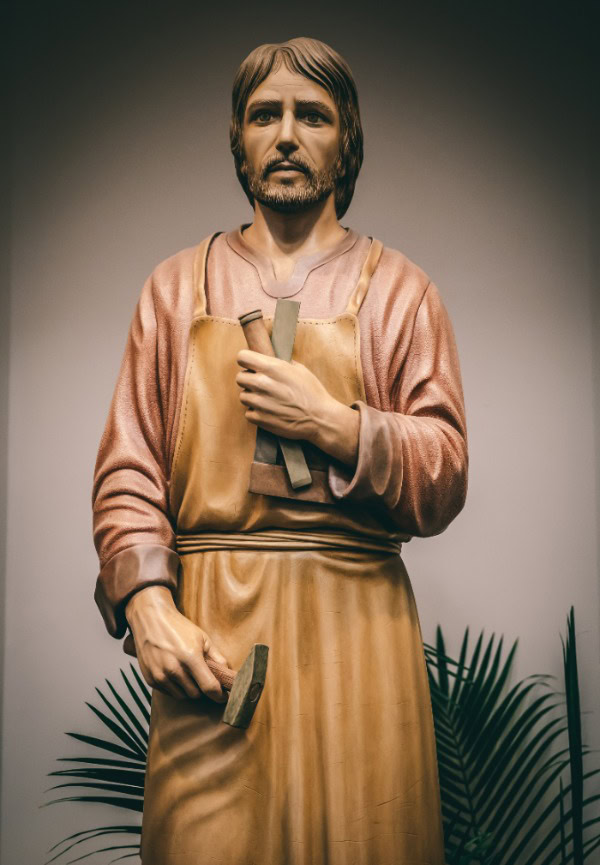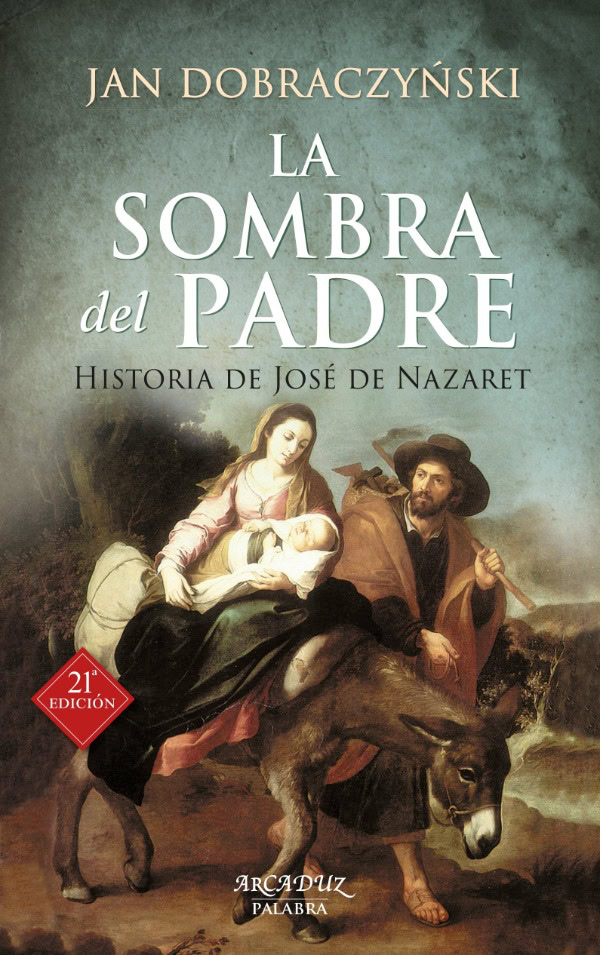
These are two themes addressed by Pope Francis in the final part of his letter Patris corde (December 8, 1920) on St. Joseph.
Since Leo XIII (cf. enc. Rerum novarum, 1891), the Church proposes St. Joseph as a model worker and patron of workers. In contemplating the figure of St. Joseph, Francis says in his letter, we can better understand the significance of the work that gives dignity, and the place of work in the plan of salvation.
On the other hand, today we should all reflect on parenthood.
Work," writes the Pope, "becomes a participation in the very work of salvation, an opportunity to hasten the coming of the Kingdom, to develop one's potential and qualities, placing them at the service of society and communion. Work becomes an occasion of fulfillment not only for oneself, but above all for that original nucleus of society which is the family" (Patris corde, n. 6).
Two interconnected references should be highlighted here: one is the relationship between work and family. The other is the current situation, not just the pandemic but the broader framework, which calls for review our priorities in relation to work.
Thus Francis writes: "The crisis of our time, which is an economic, social, cultural and spiritual crisis, can represent for everyone a call to rediscover the meaning, importance and necessity of work in order to give rise to a new 'normality' in which no one is excluded. St. Joseph's work reminds us that God made man himself did not disdain work. The loss of work that affects so many brothers and sisters, and which has increased in recent times due to the Covid-19 pandemic, should be a call to review our priorities" (Ibid.).

In the last part of his letter, the Pope stops to consider that Joseph knew how to be a father "in the shadow" (he quotes the book by the Polish Jan Dobraczyński, La sombra del Padre, 1977, published in Spanish by Palabra, Madrid 2015).
Thinking about this "shadow of the father" or the one in which the father is, we can consider that our postmodern culture experiences the wounds caused by a rebellion against fatherhood, explicable if we take into account many pretensions of fatherhood that were not or did not know how to be what they should be; but a rebellion against fatherhood is unacceptable in itself, because it is an essential part of our humanity and we all need it. Today, in fact, we need, everywhere, fathers, to go back to the father.
In the society of our timeFrancis observes, children often seem to have no father. And he adds that the Church also needs fathers, in the literal sense, good fathers, but also in a broader sense, spiritual parents of others (cf. 1 Cor 4:15; Gal 4:19).
The Pope explains in a suggestive way: "To be a father means to introduce the child into the experience of life, into reality. Not to hold him, not to imprison him, not to possess him, but to make him capable of choosing, of being free, of going out" (n. 7). And he thinks that the word "most chaste" that the Christian tradition places next to Joseph expresses this "..." (n. 7). logic of freedom that every parent should have in order to to love in a truly free way.
Francis notes that St. Joseph would not consider all this primarily as a "self-sacrifice," which could give rise to a certain frustration, but simply as a gift of self, as the fruit of trust. That is why St. Joseph's silence does not give rise to complaints but to gestures of trust.
"The missionary spirit of the Church is nothing more than the impulse to communicate the joy that has been given to us," Address to the Roman Curia, December 22, 2008.
Here is a further explanation of the relationship between sacrifice and generosity for lovein a perspective that could be called Christian humanism or Christian Christian anthropology:
"The world needs fathers; it rejects masters, that is: it rejects those who want to use the possession of others to fill their own emptiness; it rejects those who confuse authority with authoritarianism, service with servility, confrontation with oppression, charity with assistance, force with destruction. Every true vocation is born of the gift of self, which is the maturation of simple sacrifice".
In order to take advantage of this argument, in our opinion, it is convenient to keep in mind the rather negative and impoverishing meaning that the word "sacrifice" has in the street today. For example, when we say: "If there is no other choice, we will make a sacrifice to achieve this...". Or when we express that we don't like something or that person we don't like, but "making a sacrifice" we can bear it.
This can be seen as a result of the de-Christianization of cultureFrom a Christian perspective, sacrifice does not primarily have this sad, negative or defeatist connotation, but on the contrary: it is something worthwhile, because behind it lies life and joy. However, no mother or father who does what they have to do thinks that they are doing it "out of sacrifice", or doing a favor with a lot of effort on their part, because "there is no other way".
By losing the Christian perspective (i.e., the faith that Christ triumphed on the cross, and therefore the cross is a source of serenityToday the word "sacrifice" has a sad and insufficient ring to it. The Pope expresses it well when he proposes overcoming the "merely human logic of sacrifice. In fact, sacrifice, without the full meaning given to it by the Christian perspective, is oppressive and self-destructive.
In fact, in connection with the generosity that all parenting requiresThe Pope adds something that illuminates the road map of ecclesial vocations: "When a vocation, whether in married, celibate or virginal life, does not reach the maturity of self-giving, stopping only at the logic of sacrifice, then instead of becoming a sign of the beauty and joy of love, it runs the risk of expressing unhappiness, sadness and frustration.
And this can be seen in relation to the true meaning of Christian freedom, which overcomes not only the sacrificial mentality of the Old Testament, but also the temptation of a "voluntaristic moralism".
On various occasions, regarding the passage of Rom 12:1 (on "spiritual worship"). It is a mistake to want to be saved, purified or redeemed by one's own efforts. The message of the Gospel proposes to learn to live day by day the offreshening of one's own life in union with Christin the Church and on the center of the Eucharist (cf. specifically General Audience, January 7, 2009).
This seems to us to illuminate what Francis' letter says, formulated in terms that can be accepted by anyone, not just a Christian, while at the same time setting out on the path towards the fullness of what is Christian: parenthood must be open to the new spaces of children's freedom. Certainly this supposes the concern of the father and the mother to form the children in freedom and responsibility.
It is worth transcribing this paragraph, located almost at the end of the letter: "Every child always carries with him a mystery, something unknown that can only be revealed with the help of a parent who respects his freedom. A father who is aware that he completes his educational action and fully lives his paternity only when he has become 'useless', when he sees that the child has achieved autonomy and walks alone along the paths of life, when he puts himself in the situation of Joseph, who always knew that the Child was not his own, but had simply been entrusted to his care".
Don Ramiro Pellitero Iglesias, Professor of Pastoral Theology at the Faculty of Theology of the University of Navarra.
Published in Church and new evangelization.